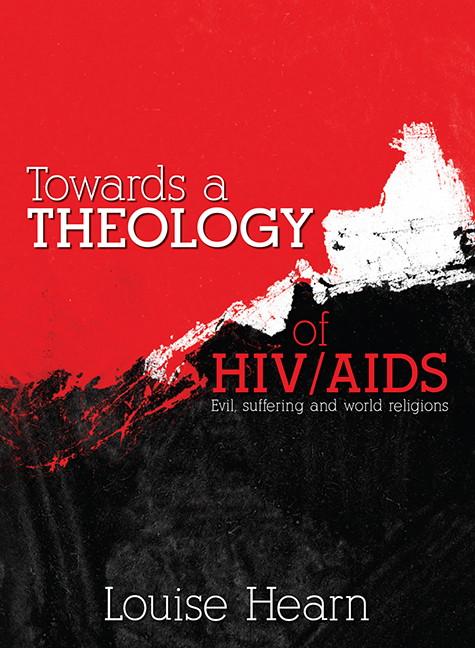Book contents
- Frontmatter
- Contents
- Foreword
- Chapter 1 Introduction
- Chapter 2 Evil and suffering
- Chapter 3 Inadequacy of theodicy
- Chapter 4 Understanding the interconnectedness of HIV/AIDS
- Chapter 5 Alleviating suffering due to AIDS
- Chapter 6 Towards a Theology of HIV/AIDS
- Appendix 1 Models for the interaction between text and reader
- Bibliography
- Index
Chapter 4 - Understanding the interconnectedness of HIV/AIDS
Published online by Cambridge University Press: 18 February 2020
- Frontmatter
- Contents
- Foreword
- Chapter 1 Introduction
- Chapter 2 Evil and suffering
- Chapter 3 Inadequacy of theodicy
- Chapter 4 Understanding the interconnectedness of HIV/AIDS
- Chapter 5 Alleviating suffering due to AIDS
- Chapter 6 Towards a Theology of HIV/AIDS
- Appendix 1 Models for the interaction between text and reader
- Bibliography
- Index
Summary
In any sensemaking orientation many theoretical snippets of knowledge from philosophies, the sciences, and technology which have interacted in the past with that group or faith system are in operation. Sensemaking views are also influenced by current scientific and theoretical patterns and theories through scattered insertions and injections from many philosophies, sciences and technologies.
Pools of scientific, technological and philosophical knowledge are accumulated over many centuries from many cultures of the past and the present. These pools of knowledge coming about through a myriad of sensemaking approaches of people, including religions, ideologies and value-systems from global history, result in further pools of accumulative knowledge. On the one hand, these sensemaking orientations of people are embedded in multiple writings and sayings, activities and things that human beings encounter in modern life. On the other hand, the sensemaking orientations expressed in the accumulated pool of global knowledge, filter into philosophies, sciences and technologies which in their applied and embodied forms are embedded in products from electric kettles and microwave ovens and aeroplanes to designer drugs and computers. Sensemaking orientations are also embedded in intangible products and skills from theories and approaches such as hypnosis and therapeutic strategies to meaningful patterns of faith, thinking, loving, socialising and speaking.
The question ‘who (or what) is responsible and accountable for the HIV/AIDS pandemic?’ has to be answered in terms of the mystery of the simultaneity of the close connection and radical otherness of God, human beings and the natural environment. This question is in need of answering so that the HIV/AIDS pandemic can be satisfactorily dealt with in theologies and theories of faith. Many reductionist explanations and solutions to various dilemmas were continuously on offer in the modern era (1600–2000 ce) in which either God or humanity or the physical-natural environment is portrayed as the initiating agent not only solely responsible and accountable for all good events, happenings and processes but also for disasters, catastrophes and pandemics striking the world.
One of the facile solutions offered by traditional as well as black and liberation theologies during the South African struggle against apartheid is the notion of God's solidarity with the poor, marginalised and diseased.
- Type
- Chapter
- Information
- Towards A Theology of HIV/AIDSEvil, suffering and world religions, pp. 70 - 93Publisher: University of South AfricaPrint publication year: 2013



